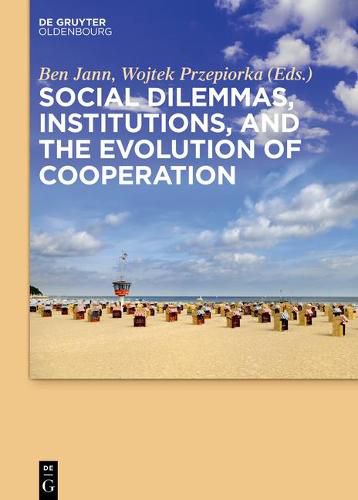Readings Newsletter
Become a Readings Member to make your shopping experience even easier.
Sign in or sign up for free!
You’re not far away from qualifying for FREE standard shipping within Australia
You’ve qualified for FREE standard shipping within Australia
The cart is loading…






This title is printed to order. This book may have been self-published. If so, we cannot guarantee the quality of the content. In the main most books will have gone through the editing process however some may not. We therefore suggest that you be aware of this before ordering this book. If in doubt check either the author or publisher’s details as we are unable to accept any returns unless they are faulty. Please contact us if you have any questions.
The question of how cooperation and social order can evolve from a Hobbesian state of nature of a war of all against all has always been at the core of social scientific inquiry. Social dilemmas are the main analytical paradigm used by social scientists to explain competition, cooperation, and conflict in human groups. The formal analysis of social dilemmas allows for identifying the conditions under which cooperation evolves or unravels. This knowledge informs the design of institutions that promote cooperative behavior. Yet to gain practical relevance in policymaking and institutional design, predictions derived from the analysis of social dilemmas must be put to an empirical test. The collection of articles in this book gives an overview of state-of-the-art research on social dilemmas, institutions, and the evolution of cooperation. It covers theoretical contributions and offers a broad range of examples on how theoretical insights can be empirically verified and applied to cooperation problems in everyday life. By bringing together a group of distinguished scholars, the book fills an important gap in sociological scholarship and addresses some of the most interesting questions of human sociality.
$9.00 standard shipping within Australia
FREE standard shipping within Australia for orders over $100.00
Express & International shipping calculated at checkout
This title is printed to order. This book may have been self-published. If so, we cannot guarantee the quality of the content. In the main most books will have gone through the editing process however some may not. We therefore suggest that you be aware of this before ordering this book. If in doubt check either the author or publisher’s details as we are unable to accept any returns unless they are faulty. Please contact us if you have any questions.
The question of how cooperation and social order can evolve from a Hobbesian state of nature of a war of all against all has always been at the core of social scientific inquiry. Social dilemmas are the main analytical paradigm used by social scientists to explain competition, cooperation, and conflict in human groups. The formal analysis of social dilemmas allows for identifying the conditions under which cooperation evolves or unravels. This knowledge informs the design of institutions that promote cooperative behavior. Yet to gain practical relevance in policymaking and institutional design, predictions derived from the analysis of social dilemmas must be put to an empirical test. The collection of articles in this book gives an overview of state-of-the-art research on social dilemmas, institutions, and the evolution of cooperation. It covers theoretical contributions and offers a broad range of examples on how theoretical insights can be empirically verified and applied to cooperation problems in everyday life. By bringing together a group of distinguished scholars, the book fills an important gap in sociological scholarship and addresses some of the most interesting questions of human sociality.